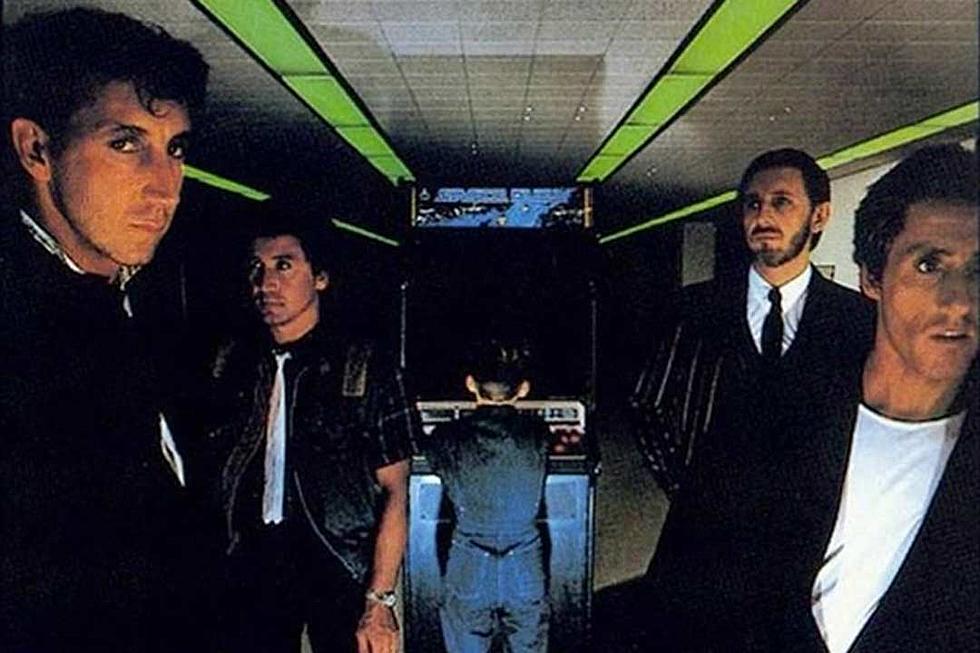
Why Roger Daltrey Wanted to Shelve the Who’s ‘It’s Hard’
It's Hard, the Who's controversial and somewhat underrated 10th album, was released in September 1982. Years later, singer Roger Daltrey argued that it shouldn't have been issued at all.
The album came during a strained period for the Who, who were coming off 1981's commercially successful but creatively disappointing Face Dances. Plus, guitarist and songwriter Pete Townshend's drinking finally led to rehab.
After returning to the Who, there were fences to be mended both personally and creatively. "I managed to convince the guys in the band that I would stay alive if they allowed me to work with them again," Townshend recalled years later. "After the Rainbow fiasco" – a 1981 concert where Townshend drank four bottles of brandy and got in a backstage fight with Daltrey – "I had difficulty proving to Roger in particular that I was going to enjoy working with the Who, and that it was important to me that the band end properly, rather than end because of my fucking mental demise."
Townshend, showing his dedication to rebounding from Face Dances, challenged his fellow band members to openly discuss any ideas regrading the sound and lyrical direction of the record before anyone would start writing. While common ground was hard to come by, the members eventually decided that their empathy for the planet and the people on it combined with the highly volatile times was rife with subject matter.
"I felt that suddenly the band had an outside purpose and it really did unify us a lot," Townshend says of this time. "It made us feel like human beings, part of society, living on a planet, not as isolated superstars who were worried about advancing middle age, money problems, whether they could buy another radiator cap for their Rolls-Royces. We were living in the real world again."
Despite Townshend's commitment to the direction, singer Daltrey never quite took to It's Hard. At the time, he called it "a stop-gap album" and stated that he felt they didn't take enough chances. In a 1994 interview, he was more direct: "It's Hard should have never been released."
Watch the Who Perform 'Eminence Front'
The album's biggest hit, "Athena," was penned by Townshend after meeting engaged actress Theresa Russell and immediately falling for her. (She didn't return the affection.) The track climbed to No. 28 on the singles chart and No. 3 at mainstream rock, but despite the radio airplay, it was not a favorite of the band when it came to the live setting, and they eventually cut the song from set lists.
"Eminence Front," on the other hand, quickly became a staple of the band's live show, with Townshend creating a different solo for the song every night. The track reached No. 5 on the mainstream rock chart, but failed to break through to the Top 40 singles list.
Other favorites include "Dangerous," the first song from It's Hard to be introduced live; "Cry If You Want," a staple during the band's 1982 Farewell Tour that returned in abbreviated form on subsequent reunion shows; and the title track, the band's final commercial single.
Though Daltrey has distanced himself from the It's Hard album, "Cry If You Want" was one song that gained a positive reaction from the singer: "I think the statement, the song that most captures what the Who feel at the moment is a song called 'Cry If You Want.' I think it should have been the single. ... I think that really does state how it feels to be 38 years old and singing in a rock band called the Who!"
The album art, designed by Graham Hughes, depicts a young boy playing an Atari game, and serves as a nod to the changing times. Another sign of the changing times: It's Hard became the first album from the band's catalog to be released on compact disc.
It's Hard peaked at No. 8 on the Billboard album chart, and was certified gold by the RIAA just two months after its release. The Who didn't release another album until 2006's Endless Wire, and by then the lineup was down to just Daltrey and Townshend, following he 2002 death of bassist John Entwistle.
Rejected Original Titles of 30 Classic Albums
Why Don't More People Love This Album by the Who?
More From Ultimate Classic Rock









